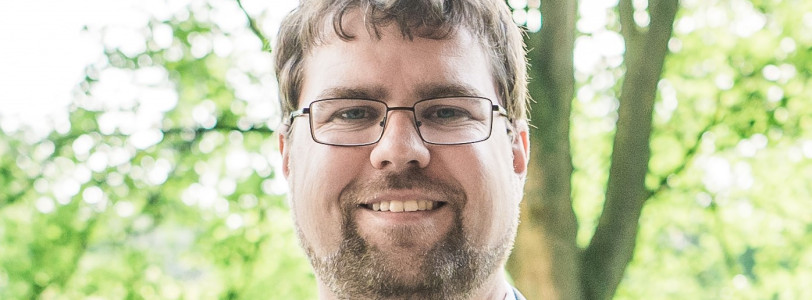Could you please introduce yourself to the reader?
I'm Stuart Fox, a senior lecturer in politics at the University of Exeter. Broadly speaking, my area of expertise is young people's political participation. I'm particularly interested in generational differences in political engagement and political behaviour, and what we can do to reduce inequalities in political participation of all kinds. I'm interested in how different aspects of our society, such as the way we grow up, the prevailing social context, our religion, or our families, or our community participation through volunteering, ultimately structure the way we participate.
Why were you initially drawn to these research areas?
I got into this field originally through personal interest. As a young adult, I always found it really surprising that so many of my friends had political opinions but weren't engaged with politics. I wanted to try and explain that. I was also someone who was utterly convinced that the reason that young people voted in lower numbers was because politicians ignored that group. I was really interested in effectively putting that particular perception to the test in an academic setting.
My research in subsequent years has shown that there isn't a lot of evidence for that proposition, which has just made it even more interesting to me. Inequality is currently a key indicator about how young people participate, and now I’m thinking about what we can do to reduce those inequalities and try to help those from the most underrepresented backgrounds have more of a voice in politics.
What is the impact of religion on young people’s voting behaviour in the UK?
I do think the influence of religion is understated. I don't think it's the most powerful social indicator because there’s no question that, as a society, we’re becoming more secular. However, academics and policymakers have failed to fully appreciate how religion affects people's lives in general. When we think about how many people are religious, we tend to think about data from the census. In the last census, a lot of media coverage pointed out that the majority of people in this country don't identify as religious anymore. Whilst that’s true, it doesn't mean that religion isn't having an effect on their lives. There's a growing number of people, for example, who may not belong to a religion but still believe in God. There’s also a growing number of people who don't believe in God, but they go to church, because they like and want to contribute to their community. Our research actually found that it's roughly 2/3 of the British adult population who could be described as religious in some way.
To not identify with a religion but to still go to church is more common amongst young people. So it's amongst young people that this under-appreciated influence of religion is most widespread. Once you are engaging with anything that affects your identity, and in particular your community identity, you've got something that's going to affect your politics. That in turn will impact the kind of parties you vote for. That’s why religion has an effect.
How does volunteering affect political participation?
Only recently have we been able to source the data we need to understand how volunteering impacts turnout. Of course, one of the big problems you have when you study volunteering is that the people who are likely to volunteer are also more likely to vote, because many volunteers and voters come, for example, from wealthier backgrounds. They're likely to be interested in community issues, they're probably on a trajectory to go to university, all of which mean that when you're older, you're more likely to vote, protest or sign petitions.
The first benefit about volunteering is awareness raising. People who volunteer become more aware of issues in their community and in their social networks and that might motivate political activity. Exposure to different issues will make you more aware and motivated to take action, Such as writing to your MP or voting in the election.
The second benefit is to do with social networks. When you volunteer, you meet people that you might not otherwise. You interact with people who have had different experiences, have different values and you will learn things from speaking to them. There will be an exchange of information or even confidence.
A final benefit is that people who volunteer are much more likely to develop a belief that voting is a civic duty.
Interestingly, volunteering can be used as a tool to increase turnout. It wouldn’t be easy, because most people who volunteer are likely to vote anyway, so they don't need to help. If we can get more people volunteering, we know more of them will be interested in politics, will believe that voting is a civic responsibility, and therefore more will vote.
What do you think motivates young people to vote in general elections?
The same thing that motivates everyone else. I don't think there's anything particular to young people here. Sometimes we can get a bit carried away assigning differences between young and older people. That's not to say there aren't some issues that are distinctive to young people. But ultimately, I think young people vote for the same reasons as everybody else. Some of them believe that voting is a civic duty and some vote because they're passionate supporters of a political campaign or a political party. Some of them do it because they are inspired by a leader.
Do you think the political parties in the UK understand the issues faced by young people?
Every time I see young people answer this question, they disagree passionately with me. But actually, I think most political parties and politicians do understand the issues young people face. I also know that the majority of young people think they don't. Most parties or politicians are capable of understanding the issues faced by most groups in society. However, that doesn't mean they’re going to prioritise young people. Because young people don’t turnout as much, politicians aren't as incentivised to listen. Young people aren’t the majority and politicians try to cater to the priorities of the majority. Unfortunately, that often means that young people are on the losing end of debates.
What is your encouragement to young people that youth voice matters?
My encouragement comes in the form of an anecdote from 2017. There was an alleged ‘Youthquake’ in the 2017 general election when Jeremy Corbyn was leader of the Labour Party. There was a supposed surge in turnout amongst young people, which wasn’t actually the case, but the myth of the ‘Youthquake’ had a far greater impact than any turnout of young people could have. It impacted how politicians thought about young people. All of a sudden, the notion that governments could abolish tuition fees was even being entertained by the Conservative Party. Issues that young people care about, such as the environment and housing, were suddenly raised on the agenda.
The 2017 ‘Youthquake’ shows what politicians do when they think young people are voting in large numbers. So, what could happen when young people do actually turnout and vote en masse?








0 Comments